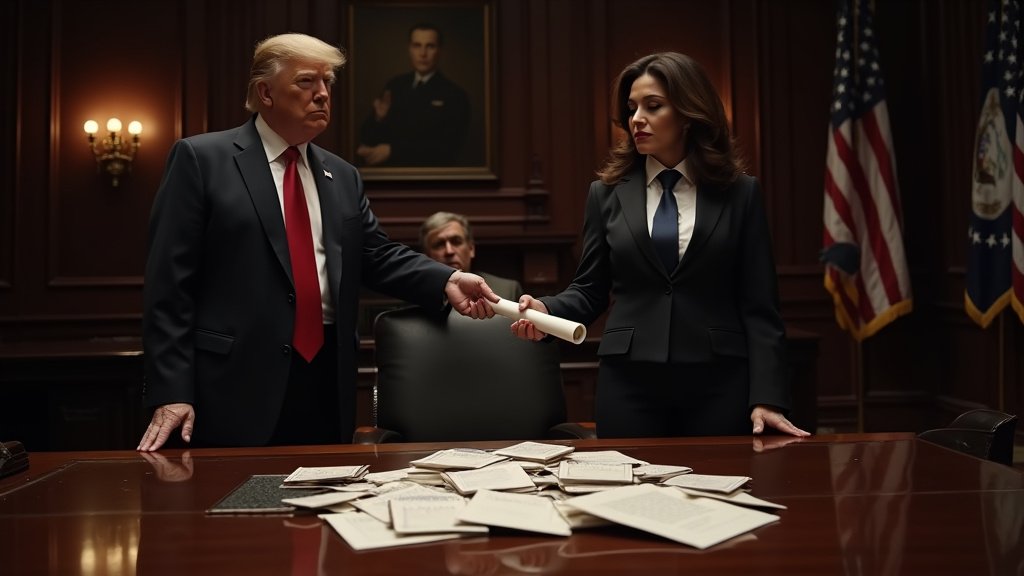Washington D.C. – The actions of President Donald Trump are reportedly subjecting the established limits of presidential power and the resilience of the United States’ democratic framework to significant tests. These developments unfold against a backdrop of public demonstrations and legal challenges that underscore the profound scrutiny his administration’s policies have attracted.
On Monday, Feb. 18, demonstrations took place on Capitol Hill in Washington. These protests, held on Presidents Day, were reported to be in support of federal workers and simultaneously voiced opposition to recent actions attributed to both President Donald Trump and entrepreneur Elon Musk. The convergence of concerns highlighted by protestors reflects a complex political landscape where governmental actions and influential private sector figures draw public reaction.
Legal Challenges to Executive Authority
A key area where the boundaries of presidential authority are being tested is through executive orders. Reports indicate that courts have intervened, temporarily pausing several of President Trump’s executive orders. Among these contested directives are those seeking to eliminate agencies originally created by acts of Congress and an order aimed at ending birthright citizenship for the children of parents who are present in the U.S. illegally. These legal challenges raise fundamental questions about the separation of powers and the extent to which an administration can unilaterally alter established legal frameworks or governmental structures.
President Trump’s approach aligns with a central promise from his presidential campaign: to dismantle what he has frequently characterized as a corrupt government bureaucracy. This pledge resonated with supporters who felt disenfranchised by long-standing federal institutions. On his first day in office, President Trump articulated his aspirational goal, stating it was to “give the people back their faith, their wealth, their democracy and indeed their freedom.” This statement laid out an ambitious agenda for transforming the relationship between the government and the citizenry, suggesting a fundamental reorientation of federal power and purpose.
Reshaping Independent Institutions
The administration’s focus on restructuring government has also extended to independent agencies, bodies designed to operate free from direct political interference to ensure regulatory fairness and stability. President Trump reportedly issued an executive order aimed at asserting greater control over such entities, specifically naming agencies like the Federal Communications Commission (FCC), the Federal Election Commission (FEC), and the Securities and Exchange Commission (SEC). This move has prompted concerns among observers about the potential for politicization of regulatory and electoral oversight bodies crucial to the functioning of democratic processes and financial markets.
Adding to these concerns, the administration’s appointee tasked with heading the Federal Communications Commission (FCC) is reported to be conducting investigations into public broadcasting entities, specifically PBS and National Public Radio (NPR). Such investigations into publicly funded media organizations by regulatory heads appointed by the executive have drawn attention regarding the independence of both the regulator and the media itself.
Foreign Policy Shifts and Global Repercussions
The impact of President Trump’s policies is not confined to domestic affairs; it has also been felt significantly on the world stage. The Trump administration’s foreign policy posture has reportedly alarmed European allies, particularly regarding expressed concerns about the United States’ commitment to the North Atlantic Treaty Organization (NATO), the cornerstone of transatlantic security for decades. Statements and actions suggesting a re-evaluation of NATO’s purpose or America’s role within it have created uncertainty among member states.
Furthermore, President Trump’s approach to international conflicts, specifically his siding with Russia in discussions aimed at resolving the war in Ukraine, has deviated from traditional U.S. diplomatic stances and generated disquiet among allies who maintain a unified front in condemning Russian aggression. These shifts in alliances and diplomatic strategies reflect a broader challenge to established international norms and relationships that have underpinned global stability since the mid-20th century.
Political Reactions and Assessments
The president’s actions have elicited sharp criticism from political figures across the spectrum, notably from Democratic leaders. Democratic Gov. JB Pritzker is cited for delivering a scathing assessment of President Trump’s actions during a recent State of the State address. Such strong rebukes from state-level leaders highlight the deep divisions and profound disagreements within the American political landscape regarding the current trajectory of presidential power and its implications for the nation’s democratic health.
In conclusion, the cumulative effect of President Trump’s executive actions, challenges to institutional norms, and shifts in both domestic and foreign policy priorities is prompting a widespread examination of the resilience of U.S. democratic institutions and the practical limits on presidential authority in the modern era. The ongoing legal battles, public discourse, and political reactions underscore a period of significant flux and constitutional deliberation in American governance.











